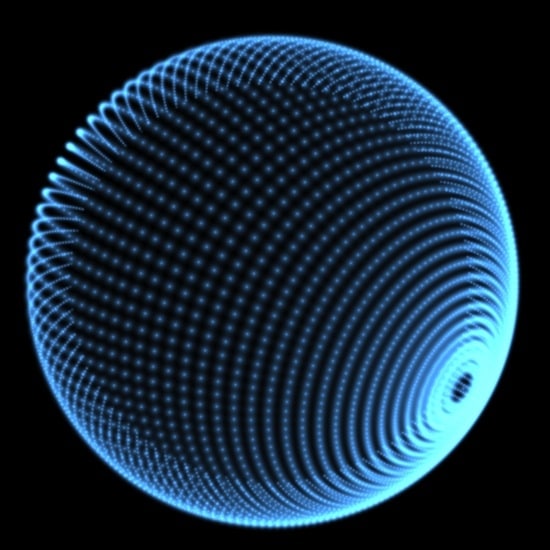He Begins His Great Trance
LINK TO: Link
YEAR: 2008
ORCHESTRATION: SSAATTBB - 8 part Choir accompanied by 6 pairs of Crotales and 1 large Tam-Tam
DURATION: 21'
LANGUAGE: English and Sanskrit
WORDS BY: Rabindranath Tagore, translated by William Radice
COMMISSIONED BY: BBC Radio 3 for the BBC Singers
DEDICATION: To my mother
AVAILABILITY: Contact the Composer
PREMIERE DATE: July 4, 2008
PREMIERE INFORMATION:
BBC Singers conducted by James Morgan
St. Giles, Cripplegate
City of London Festival
INTRODUCTION:
Taking my earlier setting of Tagore’s Brahma, Vishnu, Shiva (which was commissioned by the London Sinfonietta Voices in 1988) as a starting point, I have now made this new setting for 8-part choir, accompanied by crotales, for the BBC Singers and the City of London Festival. There are three sections:
I The Dark
II The Music
III The Fire
I was drawn to this text not only for its direct and dramatic account of creation, preservation and destruction, the principle attributes respectively of the three gods (Brahma, Vishnu and Shiva) featured in the poem by Tagore, but equally for its pointed and vivid imagery involving sound and music. The musical references, which form the heart of the middle movement, are not all surprising, coming as they do from a poet who was also a renowned composer. My work takes its title from the last line in Tagore’s poem.
The dramatic shape of the poem is that of an inverted arch. The most active and frenzied passages of ‘The Dark’ (Brahma) and ‘The Fire’ (Shiva) at the beginning and towards the end form the pillars which cradle the central ‘The Music’ (Vishnu) section, where the “roar of Creation resolves into music”, subsiding to quiet expression in a passage for crotales, organised polyrhythmically to give metaphorical allusion to “the discipline of metre and rhyme”.
I have used, for this setting, the English translation of the poem by William Radice. To frame Tagore’s poem, and also to offer it an oblique commentary, I have interleaved with it the ancient Rig-Vedic Creation Hymn Nasadiyawhich, because it is removed from the epic, cataclysmic drive of Tagore’s narrative (maintaining instead the quiet, serene presence of a Sanskrit chant) directs us to more fundamental and searching questions about the nature and origins of Creation.
He Begins His Great Trance, like its foreruner Brahma, Vishnu, Shiva is also dedicated to my mother, to whose early inspiration and example I owe my music.
© Param Vir, 2008
HE BEGINS HIS GREAT TRANCE (Incorporating Tagore’s Brahmā, Vişņu, Śiva and the Creation Hymn ‘Nasadiya’ from the Rig Veda)
I THE DARK
In a worldless timeless lightless great emptiness
Four-faced Brahma broods.
nasad asin, no sad asit tadanim;
nasid rajo no vioma paro yat.
kim avarivah? kuha? kasya sarmann?
ambhah kim asid, gahanam gabhiram?
na mrtyur asid, amrtam na tarhi.
na ratria ahna asit praketah.
anid avatam svadhaya tad ekam.
tasmad dhanyan na parah kim canasa.
tama asit tamasa gudham agre;
apraketam salilam sarvam a idam.
tuchyenabhu apihitam yad asit,
tapasas tan mahinajayataikam.
Of a sudden sea of joy surges through his heart –
The ur-god opens his eyes.
Speech from four mouths
Speeds from each quarter.
Through infinite dark,
Through limitless sky,
Like a growing sea-storm,
Like hope never sated,
His Word starts to move.
Stirred by joy his breathing quickens,
His eight eyes quiver with flame.
His fire-matted hair sweeps the horizon,
Bright as a million suns.
From the towering source of the world
In a thousand streams
Cascades the primeval blazing fountain,
Fragmenting silence,
Splitting its stone heart.
kamas tad agre sam avartatadhi
manaso retah prathamam yad asit?
sato bandhum asati nir avindan
hrdi pratisya kavayo manisa
II THE MUSIC
In a universe rampant
With new life exhalant,
With new life exultant,
Vishnu spreads wide
His four-handed blessing.
He raises his conch
And all things quake
At its booming sound.
The frenzy dies down,
The furnace expires,
The planets douse
Their flames with tears,
The world’s Divine Poet
Constructs its history,
From wild cosmic song
Its epic is formed.
Stars in their orbits,
Moon sun and planets –
He binds with his mace
All things to Law,
Imposes the discipline
Of metre and rhyme.
In the Manasa depths
Vishnu watches –
Beauties arise
From the light of lotuses.
Lakshmi strews smiles –
Clouds show a rainbow,
Gardens show flowers.
The roar of Creation
Resolves into music.
Softness hides rigour,
Forms cover power.
tirascino vitato rasmir esam:
adhah svid asid, upari svid asit?
retodha asan, mahimana asan;
svadha avasat, prayatih parastat.
Age after age after age is slave to a mighty rhythm –
At last the world-frame
Tires in its body,
Sleep in its eyes
Slackens its structure,
Diffuses its energy.
From the heart of all matter
Comes the anguished cry –
‘Wake, wake, great Shiva,
Our body grows weary
Of its law-fixed path,
Give us new form.
Sing our destruction,
That we gain new life.’
III THE FIRE
The great god awakes,
His three eyes open,
He surveys all horizons.
He lifts his bow, his fell pinaka,
He pounds the world with his tread.
From first things to last it trembles and shakes
And shudders.
The bonds of nature are ripped.
The sky is rocked by the roar
Of a wave of ecstatic release.
An inferno soars –
The pyre of the universe.
Shattered sun and moon, smashed stars and planets,
Rain down from all angles,
A blackness of all particles
To be swallowed by flame,
Absorbed in an instant.
At the start of Creation
There was a dark without origin,
At the breaking of Creation
There is fire without end
In an all-pervading sky-engulfing sea of burning
Shiva shuts his three eyes.
He begins his great trance.
ko adha veda? Ka iha pravocat,
kuta ajata, kuta iyam visrstih?
arvag deva asya visajanena:
atha ko veda yata ababhuva?
iyam visrstir yata ababhuva;
yadi vasa dadhe yadi van na:
yo asyadhyaksah parame vioman
so anga veda, yadi va na veda.
[Brahmā, Vişņu, Śiva from RABINDRANATH TAGORE: SELECTED POEMS, translated by William Radice (Penguin, 1985) Copyright © William Radice, 1985. Used by permission of Penguin Books Ltd.]

